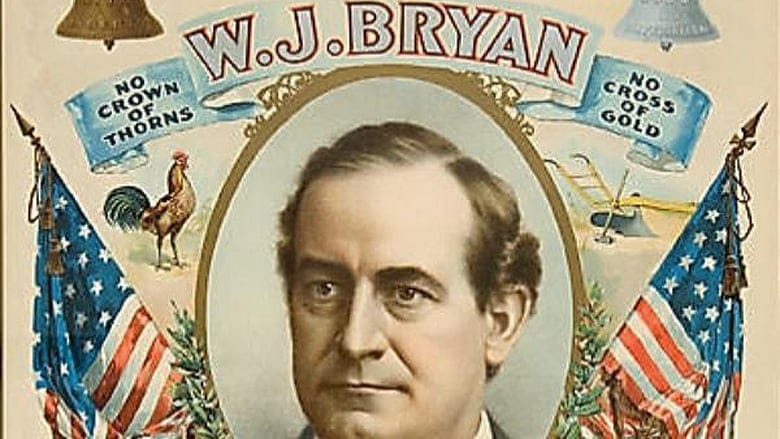2016: Populism revisited and the Cross of Gold speech

You have to go back to the 1896 presidential race between William Jennings Bryan and William McKinley to find an historical parallel to the contest in 2016 between the three finalists: Hillary Clinton, Bernie Sanders and Donald Trump. Unfortunately, the great majority of American citizens know virtually nothing about President McKinley, who was an excellent president and a man of substance and integrity. If they do know anything about McKinley, most likely it is that he was assassinated in 1901 and that, upon his death, Vice President Theodore Roosevelt became the youngest president ever at the age of 42.
William Jennings Bryan is now remembered primarily for his role in the play and movie about evolution, Inherit the Wind. In it, Bryan was wrongly portrayed as a bumbling fundamentalist prosecutor in the Scopes Monkey Trial who lost the case and his reputation battling the renowned defense lawyer, Clarence Darrow. Most people do not know that Bryan was a Democratic congressman from Nebraska who ran for president three times – in 1896, 1900 and 1908, and later served as Secretary of State in the administration of President Woodrow Wilson.

